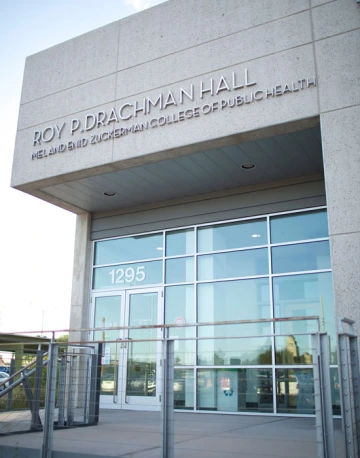One Health
Undergraduate Certificate
Quick Facts

Top 1%
of all Higher-Ed
Institutions
- Center for World University Rankings, 2024
#1
In Best Value Among
Arizona's Public Universities
- Payscale, 2024
Earn your Undergraduate Certificate in One Health and develop new strategies to meet the unique health challenges of a rapidly changing world.
Designed for the current and future public health workforce professional, this program will build on your existing public health knowledge and skills. By surveilling the interaction between human health, animal health and the environment you’ll work towards strengthening the protection of the public’s health. Learn to evaluate and tackle public health problems collaboratively from the holistic One Health perspective, and integrate a systems-thinking approach to program development. You will also upgrade your knowledge and skills regarding the importance of epidemiology, the environment, outbreaks and disease prevention.
The Undergraduate Certificate in One Health is intended to enhance your education as an undergraduate student and/or professional student beyond your regular course of study. It is designed to provide additional training to professionals already working in the field, including in research and Public Health.
This certificate serves as a feeder program into our Public Health programs, including the graduate One Health program.
A prerequisite in MATH 109C or MATH 112 or equivalent is required for this program.
*Residents of some U.S. Territories may not be eligible. Please see our Eligibility & State Authorization page for more information.
Students can complete the 12 unit program in one year. The curriculum for this course includes:
This course will provide a thorough introduction to the basics of one health through the different perspectives of disease ecology, conservation, veterinary and human medicine, and environmental health. Lectures based on active learning, in-class activities, case studies, augmented or simulated environmental experiences, and a semester-long writing assignment on topical issues are included in this course.
Gain an understanding of common and emerging Environmentally Acquired Illnesses (EAIs) and explores the multitude of hazards, conditions, and predisposing factors related to human disease. Students will learn how to identify gaps in the current model of patient evaluation and treatment and critique current research design.
This course will explore the microbial and environmental aspects and associated intervention measures used during historical and present-day outbreaks. The microbial aspect will include characteristics specific to each pathogen such as virulence factors, routes of infection and the role these factors played in the spread of the pathogen. Environmental aspects will include climate, location and related factors and the effects that these factors have on the pathogens.
Examine major health problems of underdeveloped, developed and emerging nations. Students conduct in-depth analyses of health problems among various populations in multicultural settings, both nationally and internationally.
Outcomes
Skills
Earning your Undergraduate Certificate in One Health will build core skills, including:
- Leadership
- Scientific writing
- Critical thinking
- Problem solving
- Interpersonal skills
- Science communication & advocacy
- Application of One Health principles
Potential Career Paths
Graduates of the One Health Undergraduate Certificate program will be prepared to pursue careers in the following fields:











